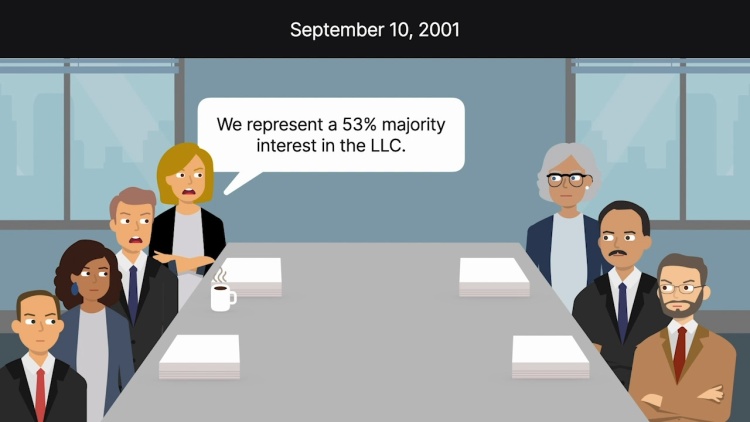Anderson v. Wilder
Tennessee Court of Appeals
2003 WL 22768666 (2003)
- Written by Mary Pfotenhauer, JD
Facts
FuturePoint Administrative Services, LLC is a member-managed limited liability company. Pursuant to the terms of the operating agreement, the members of FuturePoint who owned 53 percent of the company (defendant-members) expelled the members who owned a minority interest in the company (plaintiff-members), purchased the ownership interests of the expelled members at $150 per membership unit, and then sold the membership units to a third party for $250 per unit. Several of the members who were expelled had refused to go along with the majority’s plan to expel other minority members, acquire their membership interests, and sell them at a higher value. After the plaintiff-members were expelled, the management committee made cash distributions to the remaining members. The plaintiff-members brought suit, alleging a breach of fiduciary duty. The defendant-members moved for summary judgment, arguing that their actions were expressly permitted under the operating agreement, and that they acted in good faith because the plaintiff-members were planning to vote to distribute the company’s excess cash of $60,000 to the members, to the company’s detriment. The trial court granted summary judgment for the defendant-members. The plaintiff-members appealed.
Rule of Law
Issue
Holding and Reasoning (Goddard, P.J.)
What to do next…
Here's why 907,000 law students have relied on our case briefs:
- Written by law professors and practitioners, not other law students. 47,100 briefs, keyed to 996 casebooks. Top-notch customer support.
- The right amount of information, includes the facts, issues, rule of law, holding and reasoning, and any concurrences and dissents.
- Access in your classes, works on your mobile and tablet. Massive library of related video lessons and high quality multiple-choice questions.
- Easy to use, uniform format for every case brief. Written in plain English, not in legalese. Our briefs summarize and simplify; they don’t just repeat the court’s language.





